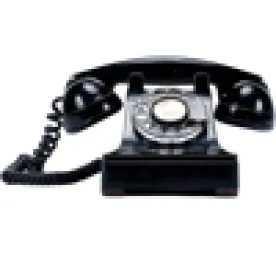In Roberts v. PayPal, Inc., No. 13-16304, 2015 U.S. App. LEXIS 18836 (9th Cir. Oct. 29, 2015) the Ninth Circuit recently upheld a grant of summary judgment to PayPal in Roberts v. PayPal, Inc., No. 12-0622, 2013 U.S. Dist. LEXIS 76319 (N.D. Cal. May 30, 2013).
The plaintiff in this putative class action claimed that PayPal sent an unsolicited text message to his cellular telephone. Roberts, 2013 U.S. Dist. LEXIS 76319, at *2. When he first became a PayPal customer in 2002, he accepted a user agreement that stated that (1) customers could only be contacted by email but (2) the agreement could be amended without prior notice. Id. at *3. In 2008, he accepted a revised agreement by accessing his account, which stated that customers could also be contacted via autodialed and/or prerecorded messages. Id. In 2010, he added his cellular telephone number to his account information but did not read the new user agreement. Id. at *4. Immediately after providing his cellular telephone number, he received a text message containing information about PayPal’s mobile services. Id.
PayPal moved for summary judgment and argued that the plaintiff had provided his “prior express consent” to the text by virtue of either (1) providing his number or (2) accepting the amended user agreement that stated that customers could be contacted via automated and/or prerecorded messages. The District Court granted that motion and agreed with PayPal that the plaintiff had provided “prior express consent” when he added his cellular telephone number to his account information. Id. at *8. It did not reach the merits of PayPal’s alternative argument regarding the effect of its amended user agreement. Id. at *14-15 (granting summary judgment “without reference to the Pay Pal user agreement”).
On appeal the plaintiff argued that, under the FCC’s 1992 Report & Order, the definition of consent should be limited to “‘normal business communications’” or “‘normal, expected or desired communications.’” Roberts, 2015 U.S. App. LEXIS 18836, at *3. The Ninth Circuit rejected that argument and affirmed the entry of summary judgment, reasoning that, under the FCC’s interpretation of “prior express consent,” the plaintiff had consented to receive the text message when he provided his number to PayPal. Id. The Ninth Circuit did not address the plaintiff’s argument regarding the scope of his “prior express consent” because he had not brought the action pursuant to the Hobbs Act, which requires that challenges to FCC orders be brought in the Courts of Appeal. Id. at *2-3. But it did note that, “[e]ven if this court were to accept [the plaintiff’s] argument, it is unclear how the text message at issue could be anything other than a normal business communication.” Id. at *3-4. Although the court did not elaborate, that statement is consistent with the fact that the “Calls to You” section of plaintiff’s revised user agreement stated that customers could be contacted via autodialed and/or prerecorded messages. Roberts, 2013 U.S. Dist. LEXIS 76319, at *3. The Ninth Circuit also refused to consider any interpretations of “prior express consent” that occurred after PayPal sent the text because they “do not apply retroactively.” Id. at *4.
Although the Ninth Circuit’s decision is unpublished, it is still notable because it reaffirms that willingly providing a cellular telephone number amounts to “prior express consent.”



 />i
/>i

